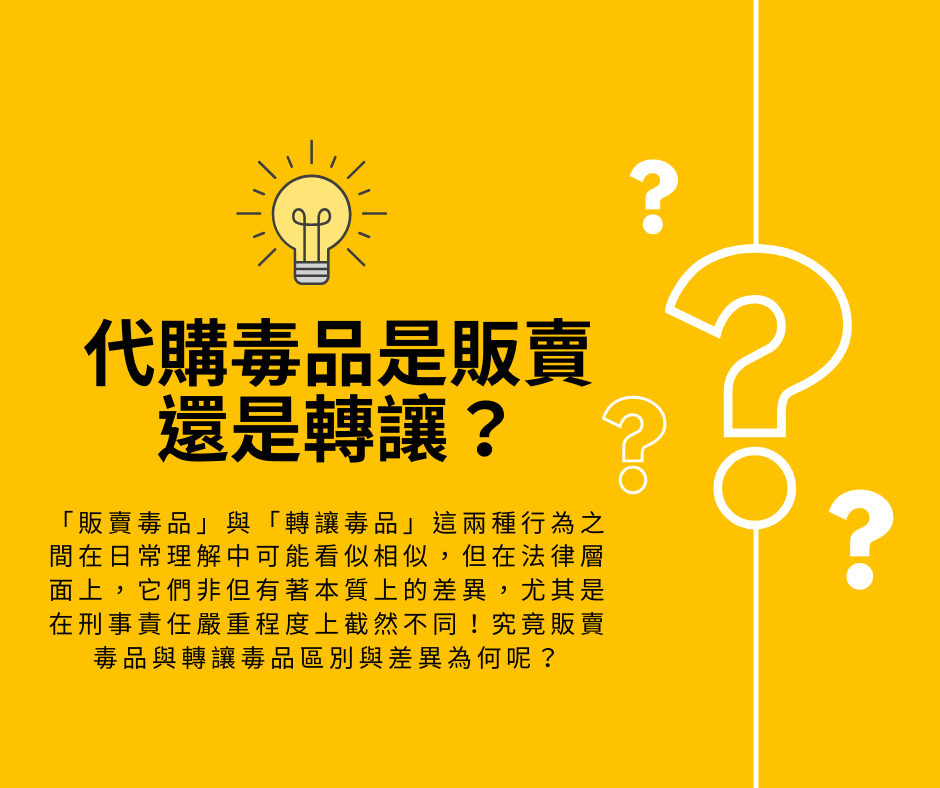文章分類Article
Drugs | Does consignment count as drug trafficking?

A social media influencer involved in drug trafficking became viral on the news networks. Xiao De, who already had a drug addiction and was bored at home due to unemployment, started thinking about drugs again. To avoid police detection, Xiao De suddenly thought of his good friend Xiao Shuai, who seemed to have a secret way to get Mary Jane (a euphemism for cannabis). He asked Xiao Shuai to buy 1g for him, planning to roll two joints to get high. However, after the transaction with his supplier, Xiao Shuai was immediately caught by the police, who accused him of drug trafficking. Xiao Shuai felt he was just helping a friend and repeatedly claimed he was innocent!
Selling Drugs vs Transferring Drugs
"Selling drugs" and "transferring drugs" might seem similar in everyday understanding, but legally, they are fundamentally different, especially in terms of the severity of criminal responsibility. What exactly are the differences and distinctions between selling and transferring drugs? Here's a breakdown:
|
|
Selling Drugs |
Transferring Drugs |
|
Narcotics Hazard Prevention Act
|
Article 5 |
Article 8 |
|
Criminal Liability |
According to different drug classifications:
|
According to different drug classifications:
|
|
Elements |
|
"Gratuitous" transfer to another person or "not for profit" compensated transfer. |
|
Relevant Case References |
Famous eSports Player Selling Class 2 Drugs Case - Criminal Judgment No. 575 of the Year 112 Appeal |
Transferring Drugs vs Selling Drugs - Supreme Court Case No. 1506 of the Year 109 |
Does Drug Procurement Count as Selling or Transferring? Case Analysis
Q&A
Q:Is there a chance of probation for accidentally ingesting or trying drugs for the first time?
;
Q:If caught selling drugs, will I be off the hook if I reveal the drug supplier?
A:Article 17, Paragraph 1 of the Narcotics Hazard Prevention Act states, "Penalties may be reduced or exempted for those who provide information about the source of drugs, leading to the arrest of other principal offenders or accomplices." The legislative intent is to encourage defendants or criminal suspects to concretely provide information about their drug supply chain, to expand the investigation of drug sources, effectively cut off the supply of drugs, and prevent the proliferation of drugs. The term "resulting in the arrest" refers to the authority of the investigative agencies, while the determination of the "veracity" of such arrests falls within the jurisdiction of the court, which should conduct the final review and decide on its authenticity. If the defendant's provided information about the drug source is irrelevant to the case in question, or if the crime investigation agency deems it to lack evidentiary value and thus fails to make a definite arrest, the court may still decide not to reduce or exempt their sentence.
Reference:毒品危害防制條例Narcotics Hazard Prevention Act